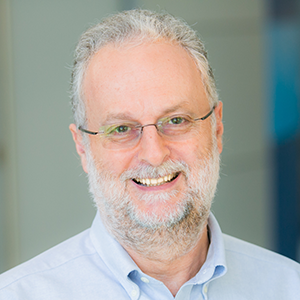
02 Aug Interview with Dr. Nicholas Dracopoli of Personal Genome Diagnostics

Nicholas (Nic) Dracopoli, Ph.D. recently joined Personal Genome Diagnostics (PGDx) as Senior Vice President of Translation Science after eighteen years working in oncology drug development at Bristol Myers-Squibb (BMS) and Janssen Research & Development. In these roles, he was responsible for building two new translational science teams whose work contributed to the approval of six new oncology drugs for BMS and Janssen. Prior to joining the pharmaceutical industry, he spent five years in the biotechnology industry at Sequana Therapeutics. Read his full bio.
Interview with Dr. Nicholas Dracopoli of Personal Genome Diagnostics
Q: What need is Personal Genome Diagnostics (PGDx) addressing?
A: PGDx is developing standardized, clinical Next Generation Sequencing (NGS) kits to help enable effective treatment decisions for cancer patients. Several other companies offer similar NGS panels as lab services in their CAP/CLIA accredited labs, but our products are designed for broad distribution to enable hospitals and clinical centers to offer this testing in their own institution without having to send samples out to other companies for analysis. We believe this will create greater access to genomic testing and allow test results to be delivered more rapidly to patients waiting on critical answers.
Q: What are the products and/or services PGDx offers/develops to address this need? What makes PGDx unique?
A: The two products farthest down our development process are PGDx elio™ tissue complete and PGDx elio™ plasma resolve. The PGDx elio™ tissue complete panel is a 507 gene test for somatic alterations (mutations, indels, copy number changes, translocations) for use as companion diagnostics as well as for tumor mutation burden (TMB) and microsatellite instability (MSI) screening. The PGDx elio™ plasma resolve panel is a 33 gene test (mutations, indels, copy number changes, translocations) for use in liquid biopsy assays for companion diagnostics and MSI screening.
We focus on answering a medical need and develop clinical content accordingly. We were founded by world-renowned cancer genomics experts out of Johns Hopkins University, and we are committed to developing standardized, regulated kits that allow patients globally to benefit from our innovative genomic technologies within their local care ecosystem.
Q: What is your role at PGDx and what excites you about your work?
A: I am Senior Vice President, Translation Sciences at PGDx. The most exciting thing about our work here is in developing complex tests that will help oncologists to optimize their therapeutic choices and improve treatment outcomes for their patients. We are committed to developing a comprehensive portfolio of standardized, regulated tissue based and liquid biopsy genomic products which we expect will broadly increase access to modern cancer diagnostics in the US and global markets.
Q: When thinking about PGDx and the domain PGDx is working in, what are some of the recent breakthroughs that are propelling the field forward and how will they impact healthcare?
A: The emergence of immuno-oncology has been the most exciting recent breakthrough in our field. For the first time ever, it is possible to eliminate metastatic cancer in a small subset of patients treated with checkpoint inhibitors. Today, the major goals in immuno-therapy are to identify those patients with a suppressed immune response who may benefit from treatment with a checkpoint inhibitor, and to develop therapies to induce a new immune response in those patients whose immune system has not recognized their tumor.
Q: What are the short-term challenges that PGDx and its peers are facing?
A: PGDx faces the same problems as all diagnostic companies in obtaining appropriate reimbursement for our diagnostic products. At a time when diagnostics is becoming increasingly important for the successful development of new cancer therapies, the imposition of commodity as opposed to value based pricing for diagnostic products will continue to slow development of important diagnostic tests that may improve patient response and survival.
Q: Is there anything else you would like to share with the PMWC audience?
A: Nothing else to add. I am looking forward to discussing these and other issues at the PMWC meeting.






